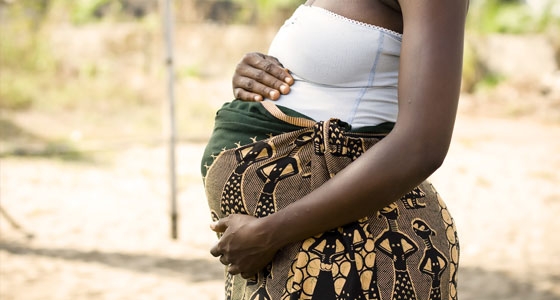Farmers Introduced To Stress-tolerant Hybrid Maize Varieties
- Home
- Farmers Introduced To Stress-tolerant Hybrid Maize Varieties

Farmers Introduced To Stress-tolerant Hybrid Maize Varieties

Some farmers in the Wa West District have been introduced to stress-tolerant hybrid maize varieties during a farmers’ field day in the Yeleyiri community.
This was when a team of researchers on the Accelerated Genetic Gain (AGG) project embarked on a monitoring visit to some trial fields of the stress-tolerant hybrid maize varieties in the Upper West Region to assess the performance of the trials.
The event was organised by the Savannah Agricultural Research Institute of the Council for Scientific and Industrial Research (CSIR-SARI) in collaboration with the International Institute of Tropical Agriculture and the department of agriculture.
The on-farm trials were being established in the Upper West, Upper East Regions, and the southern sector under the AGG project.
The AGG project is led by the International Maize and Wheat Improvement Center (CIMMYT) and funded by the Bill & Melinda Gates Foundation, the UK Foreign, Commonwealth & Development Office, the USAID, and the Foundation for Food and Agricultural Research.
Dr. George Mahama, a Senior Research Scientist with the CSIR-SARI-Wa Station in charge of the trials in the Upper West Region, said the trials, consisting of medium, early, and extra early maturing hybrid maize varieties, were being carried out in the Wa West and Wa East Districts and the Wa Municipality.
He said the project was to familiarise farmers with available stress-tolerant hybrids with high and stable grain yields to facilitate the adoption of the hybrids.
He said it was also to “demonstrate and promote the application of Good Agricultural Practices (GAPs) for the production of promising stress-tolerant maize hybrids.”
“These trials serve as an important vehicle to showcase the effectiveness of new technology to farmers.
“The participatory on-farm testing of the varieties and hybrids can facilitate the rapid transfer and adoption or acceptance of these stress-tolerant maize varieties by farmers”, he said.
Dr. Priscilla Francisco Ribeiro, a Senior Research Scientist and the AGG Project Coordinator with the CSIR-Crop Research Institute (CSIR-CRI), expressed satisfaction with the on-farm trials observed so far.
“We have come here today and what we have seen is impressive. The field management is good. I am hopeful that the farmers will select the varieties that have already been released”, she said.
Dr. Ribeiro, who is also the Head of Cereal Division and Maize Breeder at the CRI, said the project was designed to come up with crop varieties that would be tolerant of all the stresses that farmers face.
Dr. Stephen Yeboah, a Senior Research Scientist of the CSIR-CRI, said aside the development of stress-resistant crop varieties for farmers, there was also the need to conduct research into soil nutrient management.
“One of the GAPs we identified today is that, in order to boost the yield potential of our crop we need to apply best-bet nutrition management practices”, he said.
On her part, Dr. Gloria Boakyewaa Adu, a Maize Breeder with the CSIR-SARI at Nyankpala in the Northern Region, said they had been developing stress-resilient and nutrient-efficient crop varieties to improve farmers’ productivity and to meet the nutritional need of the consumers.
She said the new crop varieties went through a series of testing involving farmers to enable them to decide on their preferred varieties for approval and release.
She urged the farmers to work with the Agricultural Extension Agents to get their preferred released crop varieties for cultivation.
Meanwhile, Dr. Isaac Kodzo Amegbor, also a Maize Breeder with the CSIR-SARI in Nyankpala, stressed the need to develop climate-resilient crop varieties that could stand the test of time.
He advised farmers to go in for drought-tolerant and early maturing crop varieties to plant due to the erratic rainfall pattern.
The farmers who participated in the field day were excited that they had learned about new technologies, farming techniques, and new maize hybrid varieties that could help improve their farming activities.
They appealed for the project to be extended to farmers in other communities.
Source: GNA
- Share
Classic Ghana
Classic Ghana brings you into a fun world of arts, entertainment, fashion, beauty, photography, culture and all things in between. Let’s explore these together!







